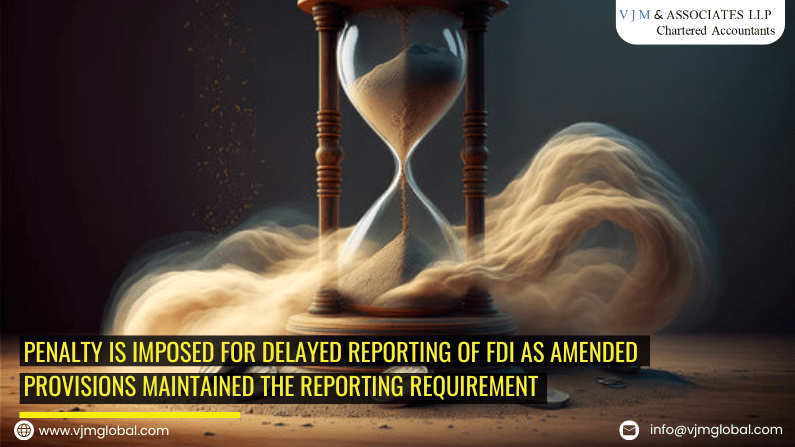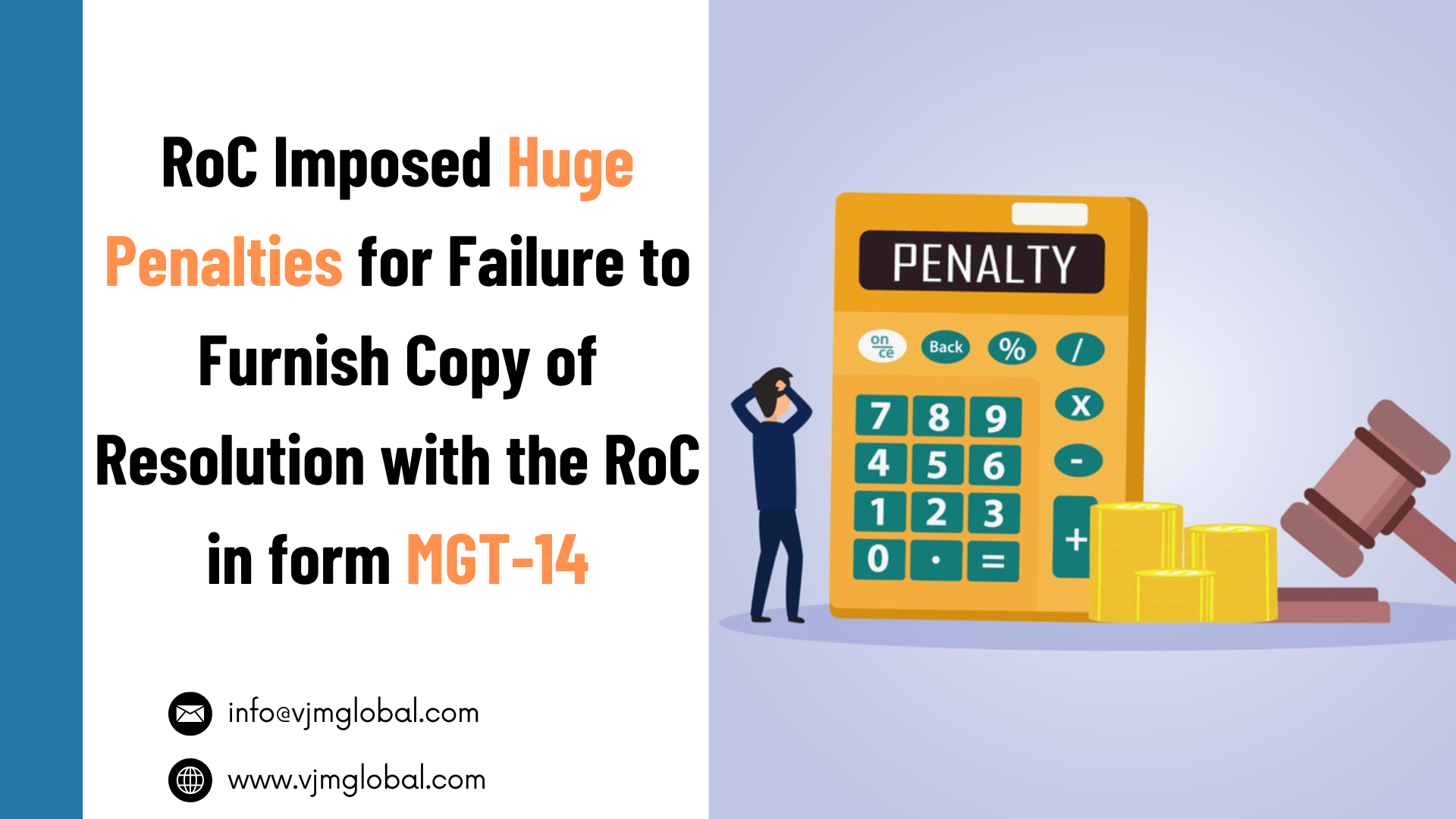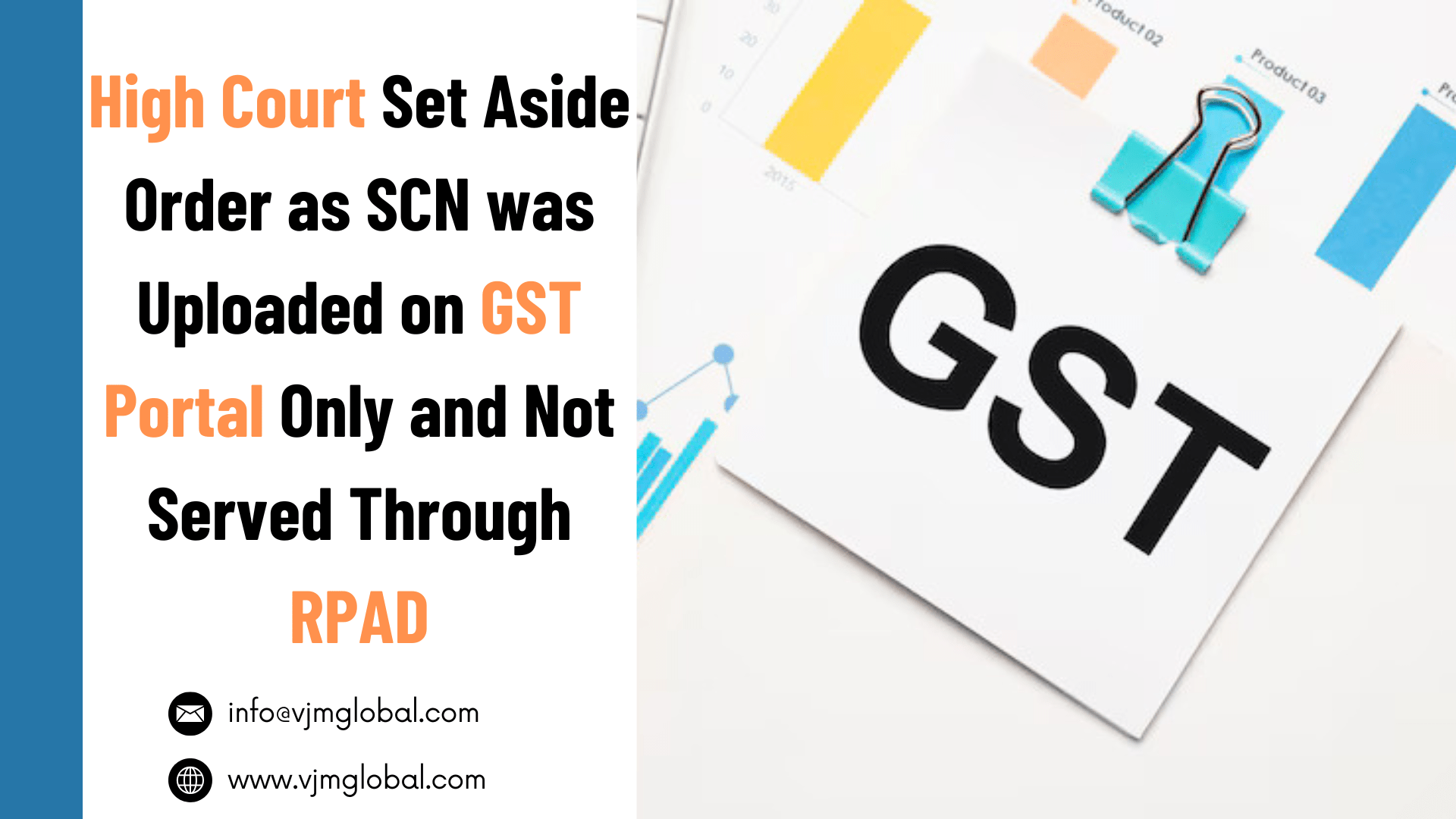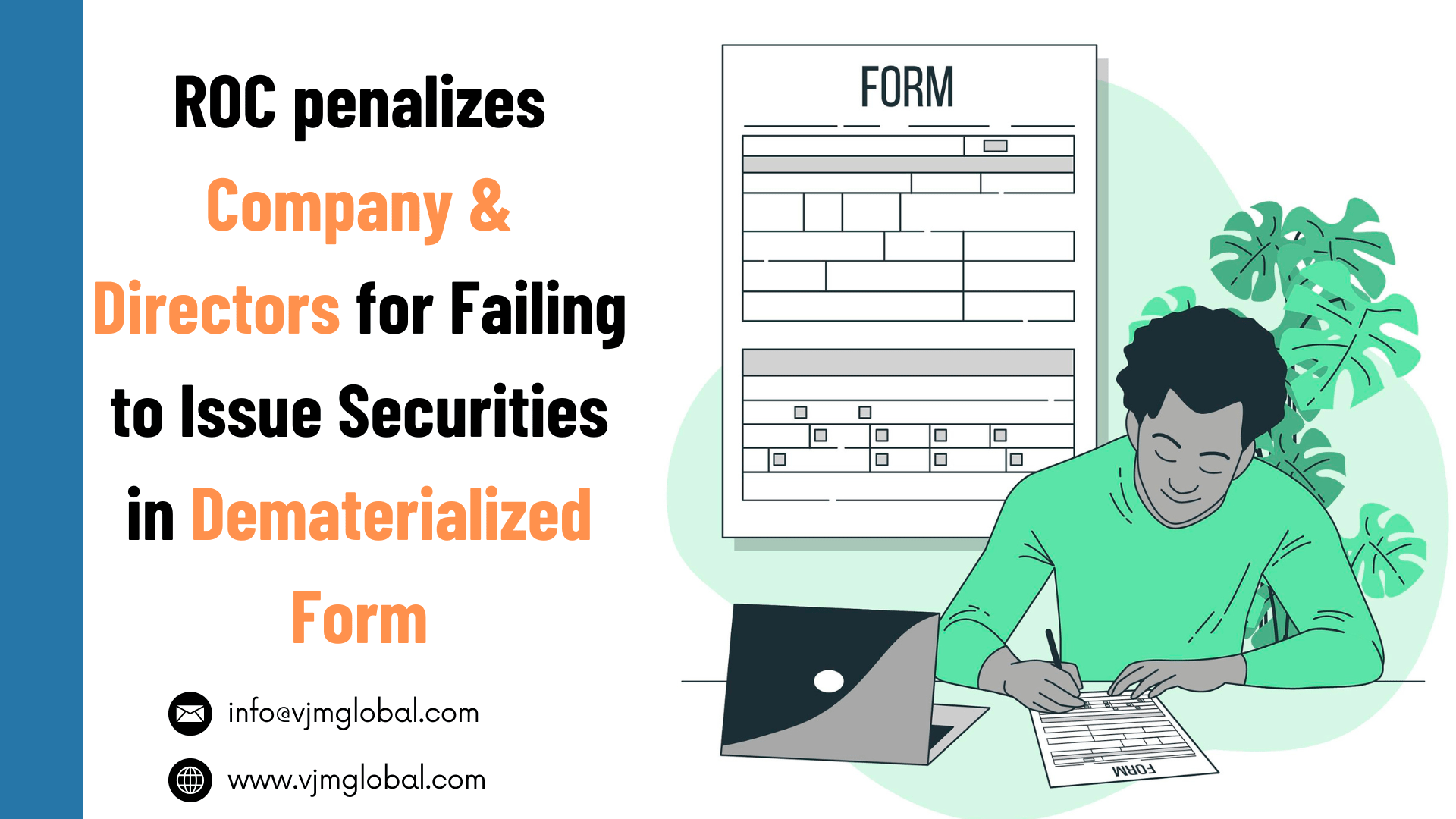Held by
Hon’ble SAFEMA in the matter of
M/s Shell India Markets Private Limited Vs The Special Director, ED, Banagluru (FPA-FE-43 & 44/BNG/2023)
The Appellant, an Indian Company, received FDI of INR 204 Crores through automatic approval route. The Company was required to file the Advance Remittance Form (ARF) within 30 days of receipt of FDI. The Company delayed in reporting of FDI to RBI by 24 days. Therefore, the penalty was imposed on the company of INR 20 Crores and on the directors of INR 5 Crores.
The Appellant contended that the RBI initiated online filing of ARF form with effect from 08.02.2016 for the first time and delay occurred due to technical issues faced by the appellant on the portal. Also, penalty is imposed in pursuance of Section 6(3)(b) of FEMA. However, such provisions were omitted w.e.f. 15.10.2019, whereas, the penalty proceedings were initiated in 2022. Further, the penalty can be imposed of a maximum amount of INR 2 Lakhs.
The Hon’ble Tribunal held that:
- Online system was in operation much before making it compulsory w.e.f. 08.02.2016. Thus, the excuse taken by the appellant cannot be accepted to justify the delay. Further, technical delay needs to be substantiated properly.
- The requirement of reporting was maintained and otherwise the repeal of the Regulation operating in the year 2016 would have no effect in the light of Section 6 and 6A of the General Clauses Act read with Section 24 of the same Act. Regulations framed by RBI remain in operation pursuant to section 47(3) as amended, the Appellate Tribunal SAFEMA held that appellant could not take excuse regarding repeal/omission of provision.
- The delay is of 24 days but for it the penalty of Rs.20 crores on the Company and Rs.5 crores on the Director is excessive in our opinion. Reasonableness in imposition of penalty needs to be shown. Accordingly, the penalty amount was reduced.
1. Brief Facts of the case
- The Appeal is filed against the Impugned order issued by the Adjudicating Authority imposing a penalty of INR 25 Crores on the Company and Directors for contravention of FEMA on account of delay in reporting of Foreign Direct Investment (FDI) to the RBI.
- M/s Shell India Markets Pvt. Ltd. (“The Appellant”) is one of the well-diversified international energy companies in the Oil and Gas sector in India.
- Vide Circular No.77 dated 12.02.2015, RBI initiated online filing of:
- Advance Remittance Form (ARF) to report FDI inflows; and
- Foreign Currency Gross Provisional Return (FCGPR) Form to report issue of eligible instruments to the overseas investors.
- The Appellant received the FDI of USD 3,09,00,000(INR 204 Crore) under automatic route, i.e., no prior approval of the RBI or Government of India was required.
- The appellant Company faced issues and difficulties in the online filing system as it was relatively new and this caused a delay of 24 days in reporting FDI remittance.
- The Appellant also filed an application for condonation of delay on the ground of unwarranted delay in the reporting occurred.
- The RBI allotted UIN to the Appellant post reporting of the remittance. Therefore, it implied that RBI has condoned the delay.
- After six years, the Bank of the Company received notice from the Assistant Director, Directorate of Enforcement, for furnishing records of the appellant company within 6 days.
- The Bank submitted the requested information and details.
- After all hearing, the Assistant Director, Directorate of Enforcement filed a complaint against the Appellant alleging violation of Section 6(3)(b) of FEMA and Regulation 5(1) of FEMA.
- It was in ignorance of the fact that Section 6(3)(b) of FEMA had already been repealed.
- After Show cause notice and reply, the Adjudicating Authority imposed a penalty of INR 20 crores on the appellant company and INR.5 crores on the Director.
- Aggrieved by the order, the appellant immediately preferred this appeal.
2. Relevant Legal Extract
Relevant extract of the law is reiterated below for ready reference:
“6. Capital Account transactions.
(3) Without prejudice to the generality of the provisions of sub-section (2), the Reserve Bank may, by regulations, prohibit, restrict or regulate the following-
..
(b)transfer or issue of any foreign security by a person resident outside India;”.
The above mentioned provisions is omitted w.e.f. 15.10.2019.
“9. Report by the Indian Company
(1) An Indian Company issuing shares or convertible debentures in accordance with these Regulations shall submit through AD Bank to the Regional Office concerned of the Reserve Bank under whose jurisdiction the Registered Office of the company operates, (A) not later than 30 days from the date of receipt of the amount of consideration for issue of shares or convertible debentures or warrants, a report in the form specified in Annex. `C’ to this schedule along with a copies of Foreign Inward Remittance Certificate (FIRC), Know Your Customer (KYC) Reporton the non-resident investor and details of the Government approval, if any.”
3. Contention of the Appellant
The Appellant contended that:
- The penalty is imposed in reference to Section 6(3)(b) of FEMA. However, such section has been omitted w.e.f. 15.10.2019.
- Further, as per Section 47(3), regulation made by RBI under Section 6 and 47 of FEMA would now vest with the Central Government. However, it shall continue to be valid until amended or rescinded by the Central Government.
- In pursuance of power received under section 47(3) of FEMA, The Central Government notified the regulation called the Foreign Exchange Management (Non-debt Instruments) Regulations, 2019.
- The regulations were made relating to the mode of payment and reporting requirement for investment in India by a person resident out of India.
- The Penalty was imposed in reference to a provision which was omitted w.e.f. 15.10.2019, whereas, the penalty proceedings were initiated in 2022.
- Further, the fact of technical difficulty faced by the appellant after introduction of the online system was also ignored.
- Condonation of delay was filed with RBI and request was made to issue the UIN. The RBI issued UIN and therefore, the appellant presumed that delay had been condoned by the RBI.
- Further, post such bonafide default, the appellant did not commit any delay in reporting.
- It was at best a case of technical default and in view of the judgments of the Apex Court, the penalty could not have been imposed.
- Also, as per the provisions of FEMA, in the present case, the maximum penalty that could have been imposed is INR 2 lakhs and not INR 25 Crores.
- Once a provision is omitted, the action cannot be taken in reference to such a provision, as held by the Apex Court in the case of Kolhapur Cane sugar Works Ltd & Ors Vs. Union of India and Ors., wherein it was held that a show cause notice after the provision is omitted would not be sustainable.
4. Contention of the Respondent
The Respondent contended that:
- The appellant has taken an excuse of technical difficulties, however, no material has been submitted to support it.
- The online system was not introduced for the first time on 08.02.2016. Rather, the same was made operative from 12.02.2015 though there was an option to submit ARF manually also.
- The online system was made compulsory w.e.f. 08.02.2016 and there could not be any teething problem as the online system was operational for almost a year prior to making it compulsory.
- The appellant is a reckoned defaulter; it has also committed default in earlier years and an application for compounding was submitted thereupon.
- With respect to the legal aspect, notice was issued in reference to Section 6(3)(b) of FEMA as this section was operational when the appellant committed default.
- With omission of section 6(3)(b), w.e.f. 15.10.2019, a new section 47(3) was also inserted to save the regulation of RBI notified under Section 6 and 47 till rule making power is exercised by the Central Government.
- The regulation framed in reference to capital account transactions by the RBI remains operational.
- If on the pretext of technical default, no penalty is imposed then the excuse of technical default would be taken by every defaulter and thereby nobody would make compliance of the provisions of the Law.
5. Analysis and finding by Hon’ble Appellate Authority
The Hon’ble Appellate Authority made following findings and analysis:
- Para 9(1)(A) of Schedule-I of FEMA requires to report the receipt of the amount of consideration for issue of shares or convertible debentures or warrants within a period of 30 days.
- Technical Issues:
- The Appellant contended that online reporting was made effective since 08.02.2016 by RBI and otherwise reporting was to be made manually and the appellant faced teething problem in making report online.
- The respondents demonstrated that the online system was introduced on 12.02.2015 itself though with liberty to make reporting manually.
- It shows the online system was in operation much before making it compulsory w.e.f. 08.02.2016.
- Therefore, we are unable to accept the excuse taken by the appellant in reference to teething problems. Teething problem, if substantiated, may remain initially but not in deplorable form under operation for a year before making it compulsory.
- Thus, the excuse taken by the appellant cannot be accepted to justify the delay.
- If the plea raised by the appellant is accepted and no penalty is imposed, then there would be no sanctity to mandate for reporting of FDI. Nobody would make a report within time and penalty can not be imposed on the pretext of technical delay.
- In fact, technical delay needs to be defined properly.
- Condonation of delay by RBI
- The appellants filed an application for condonation of delay with RBI and issuance of UIN.
- The RBI is not the authority to take up the matter of delay. UIN can be issued even in case delayed reporting.
- Thus, the letters sent to the RBI cannot fill the gap. Further, It was not that for the first time but on several occasions,appellant caused delay in reporting FDI.
- Omission of Section 6(3)(b) of FEMA and introduction of Regulation, 2017:
- Section 6(3)(b) of FEMA was omitted w.e.f. 15.10.2019 but what would be the effect of omission needs to be considered in the light of Section 6, 6A and 24 of the General Clauses Act.
- So far as the regulations are concerned, it has not been framed by the Central Government and thereby the Regulations framed by the RBI remain in operation pursuant to Section 47(3) of the FEMA.
- When such provisions were in continuity, the appellant cannot take excuse regarding repeal/omission of the provision in the light of operation of Section 6 and 6A of the General Clauses Act read with Section 24.
- The issue is squarely covered by the judgment in the case of Fibre Boards Pvt. Ltd. (supra) wherein it was held that:
- The rules were brought to regulate investment in India by person resident out of India.
- The Central Government thereafter notified the Regulations of 2019, namely, Foreign Exchange Management (Non-debt Instruments) Rules, 2019. It was in supersession of the Foreign Exchange Management (Transfer of Issue of Security by Person Resident outside India) Regulations, 2017.
- The requirement of reporting was maintained there also and otherwise the repeal of the Regulation operating in the year 2016 would have no effect in the light of Section 6 and 6A of the General Clauses Act read with Section 24 of the same Act.
- Quantum of penalty
- The Adjudicating Authority has imposed the penalty of Rs.20 crores on the Company while Rs.5 crores on the Director for the delay in reporting of FDI.
- This is not a simple case of technical default when it is in default of the provisions. However, even if a default was in reference to the provisions of the Act and Regulations, the imposition of penalty should always remain reasonable.
- The penalty cannot be evaluated only if some loss has occurred because determination of the amount is not dependent on the loss.
- Rather in case of any loss sustained, it can result in damages. The outcome of the finding aforesaid is that while damages needs evaluation of the loss effected by the deeds of other party, such requirement does not exist for the penalty.
- The delay is of 24 days but for it the penalty of Rs.20 crores on the Company and Rs.5 crores on the Director is excessive in our opinion.
- Reasonableness in imposition of penalty needs to be shown and accordingly we cause interference in the quantum of penalty and substitute it by imposition of penalty of Rs.2 cores on the Company while on Director it would be of Rs.5 lakhs.
6. Order
The Hon’ble Tribunal substituted the penalty clause. However, the impugned order is maintained on the legal and factual issues dealt with by the Adjudicating Authority.













